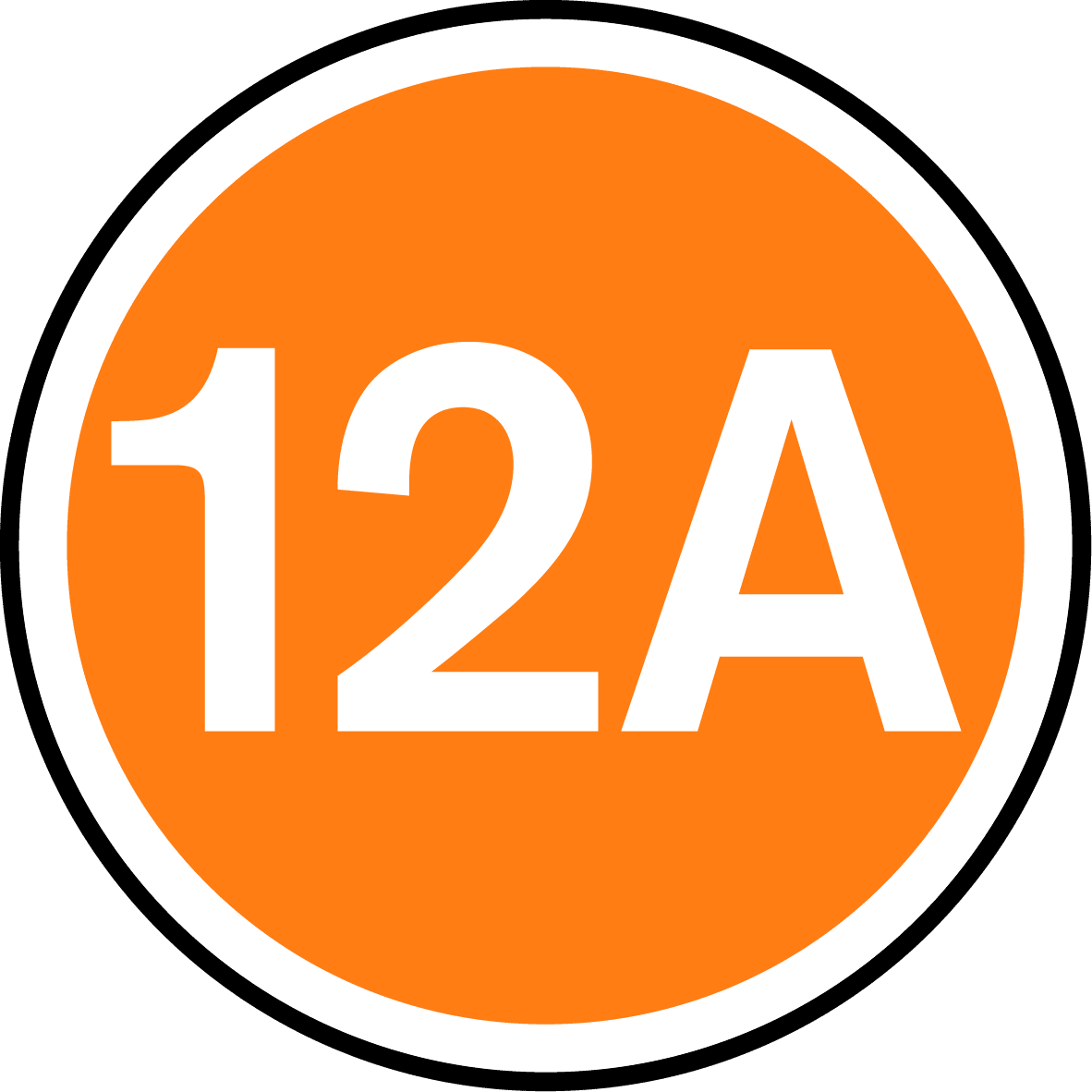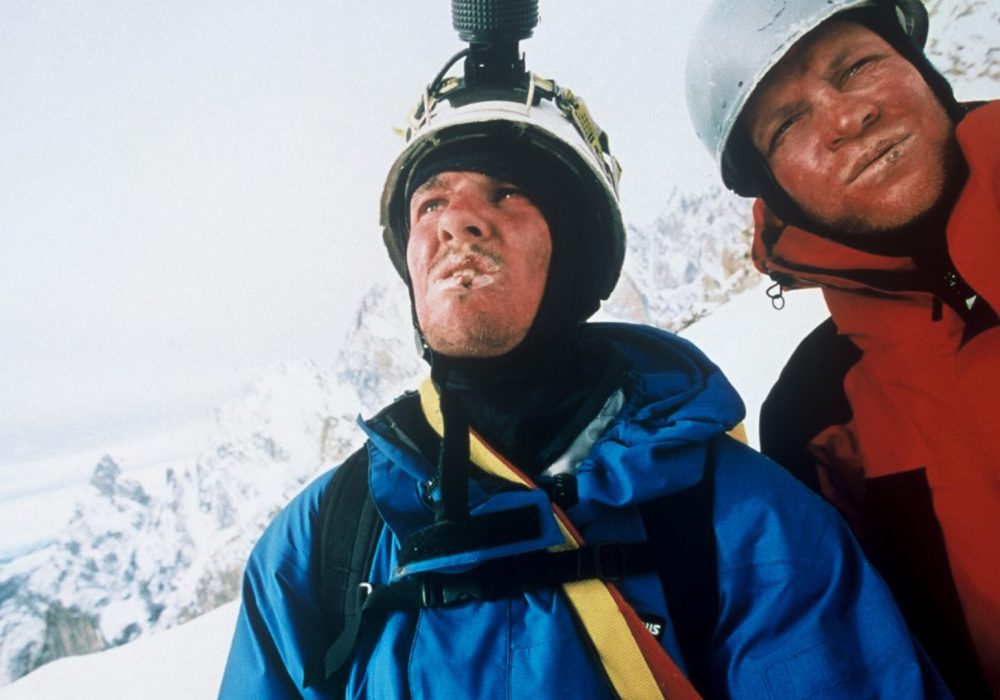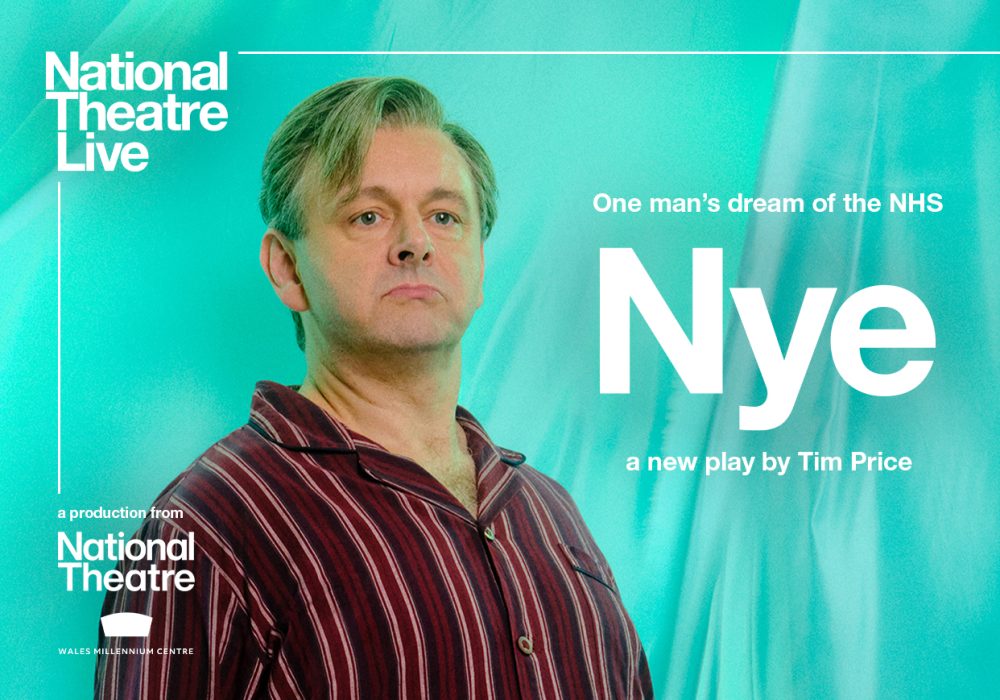Dynamic Pricing
ARC’s policy is to set ticket prices based on demand, like budget airlines, which means we set a price when the event goes on sale and then sometimes put the price up or down depending on how the show is selling. Usually, the price will increase as we get closer to the event, so it is advantageous to book in advance, although sometimes we will put special offers on and reduce the price. Our website will always show the current ticket price.
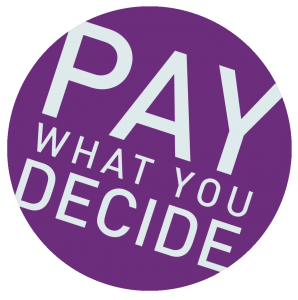
ARC’s theatre and dance performances are priced on a Pay What You Decide basis, which means you don’t have to pay until after you have seen a show!
We want to encourage more people to come and see shows at ARC, more often. Pay What You Decide not only allows you to pay what you can afford, rather than a fixed ticket price, but also removes the financial risk of buying a ticket for a show in advance without knowing whether you are going to enjoy it or not.
Tickets are available to book in advance as usual, but there is no obligation for you to pay until after you have seen the show. You can then decide on a price which you think is suitable based on your experience, which means if you haven’t enjoyed it at all, you don’t have to pay anything.
All money collected will help ARC pay the artists who have performed, and we therefore hope you will give generously.
Please ensure you have arrived and collected your tickets 15 minutes before the show starts in order to secure your seats. At the end of the show, you can decide what to pay, either by cash on the door or by card at the Box Office.
Seating: Allocated - See Seating Plan for More Details
The screening on Wed 21 Feb at 7.30pm will have descriptive subtitles
This screening is also in association with Beacon Films and will be relaxed for autistic people, learning-disabled people, and/or those with access requirements.
Award-winning documentary, Is There Anybody Out There? follows filmmaker Ella Glendining’s global search for someone with a body that looks like hers, exploring what it takes to love yourself fiercely as a disabled person in an ableist world.

‘An affirming experience that prioritises celebration over pity, allowing disabled people to author their own stories and express the joy they find in being with others.’ ★★★★★ Outtake Magazine.
‘a refreshingly honest exploration of ableism’- British Film Institute
‘Glendining isn’t scared to ask questions in her film, not just of those around her but also of herself’- Screen Daily
“Ableism must be included in our analysis of oppression and in our conversations about violence, responses to violence and ending violence. Ableism cuts across all of our movements because ableism dictates how bodies should function against a mythical norm—a non-disabled standard of white supremacy, heterosexism, sexism, economic exploitation, moral/religious beliefs, age and ability. Ableism set the stage for queer and trans people to be institutionalized as mentally disabled; for communities of color to be understood as less capable, smart and intelligent, therefore “naturally” fit for slave labor; for women’s bodies to be used to produce children, when, where and how men needed them; for disabled people to be seen as “disposable” in a capitalist and exploitative culture because we are not seen as “productive;” for immigrants to be thought of as a “disease” that we must “cure” because it is “weakening” our country; for violence, cycles of poverty, lack of resources and war to be used as systematic tools to construct disability in communities and entire countries.” – Mia Mingus
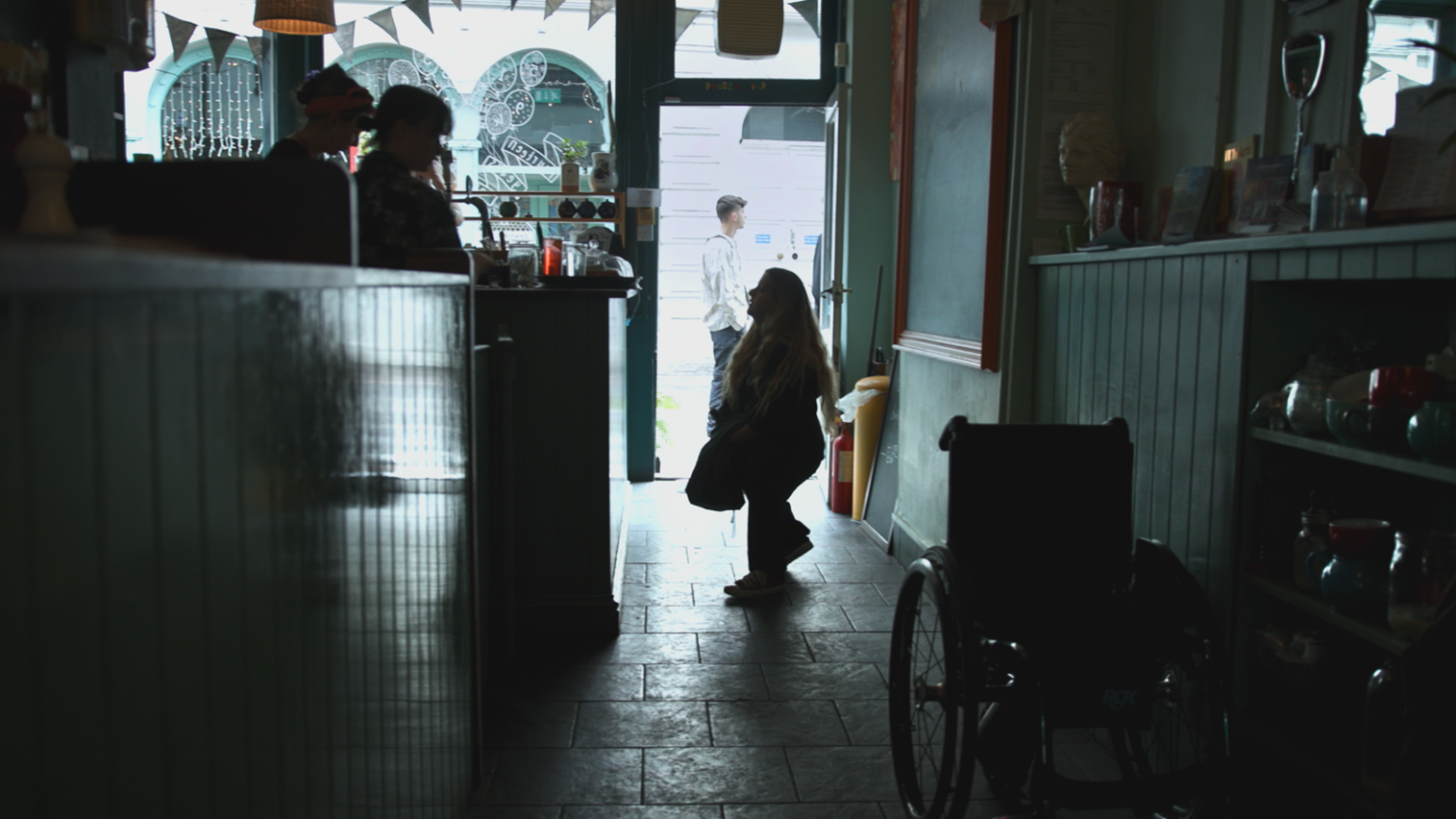
Director- Ella Glendining
Cast– Ella Glendining
-
Information about descriptive subtitles
Descriptive subtitles, sometimes referred to as subtitles for D/deaf and hard-of-hearing people or captions, transcribe dialogue and relevant aspects of the soundtrack, including music and sound effects, attempting to give D/deaf and hard-of-hearing viewers an equal experience to those who can watch films without descriptive subtitles. Descriptive subtitles would include speech identifiers and descriptive elements such as [door slamming] and [kettle whistling].
-
Seating accessibility information
Cinema
Seat size
Seats in the Cinema are 45cm (172/3“) wide and 46cm (18“) deep, are 40cm (152/3“) from the floor, and have 12cm (42/3“) between seats.
Armrests
Seats in the Cinema have armrests that do not fold away, and cannot be completely removed.
Legroom
Seats in the cinema have 30cm (112/3”) of legroom in front of seats, with additional legroom on row A and seats B1-B4 and B11-B14.
Further information
If you have any questions about accessibility our Box Office team are always happy to help and can be contacted on 01642 525199 or by emailing [email protected] - you can also tell us about your access requirements when prompted to do so during the online booking process.
-
BBFC rating info (may contain spoilers)
Language
There is infrequent use of strong language (‘f**k’). Milder terms include ‘shit’, ‘pissed’, ‘arsehole’, ‘bloody’, ‘sod’, ‘Jesus’, ‘hell’ and ‘goddamn’.
Discrimination
Occasional references to discrimination against disabled people – including lack of accessibility, and pressure to conform to an ableist concept of ‘normality’ – occur throughout the film, which carries a clear and positive anti-discrimination message. A disabled woman speaks briefly and without detail about receiving unwanted sexual attention from people with ‘fetishes’. There is also use of the discriminatory term ‘midget’ in reported speech. Documentary footage from the 1970s depicts discriminatory attitudes and behaviour, such as a mother of a disabled child stating her belief that he will never marry nor have children, and an interviewer asking a wheelchair user whether she ever wishes that her parents had chosen not to let her live. There is also brief use of clips from the 1932 horror film FREAKS, in which disabled performers at carnival sideshow are described as ‘monstrosities’ and a group of little people are shown chasing a screaming woman.
Injury detail
There are infrequent very mild images of medical detail.
Theme
There are brief and undetailed references to a person becoming ‘sober’ after spending time in rehab.
